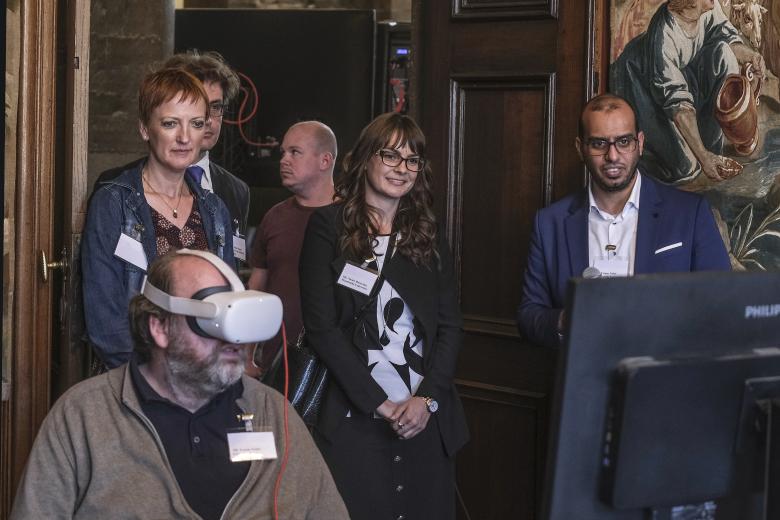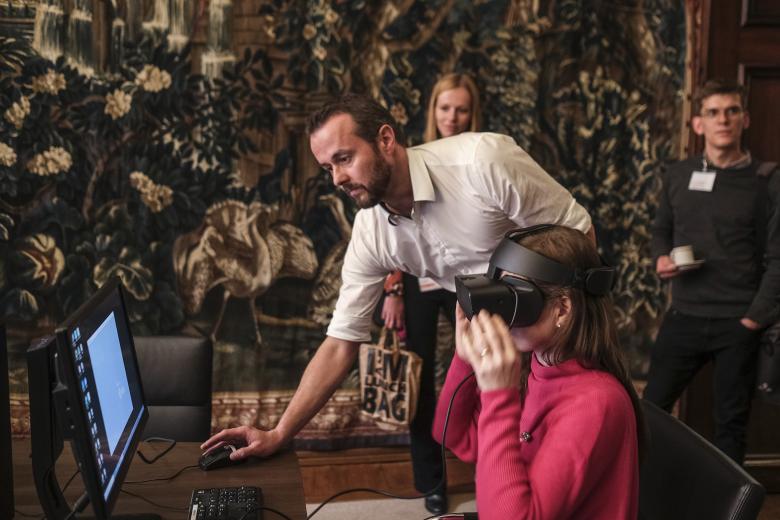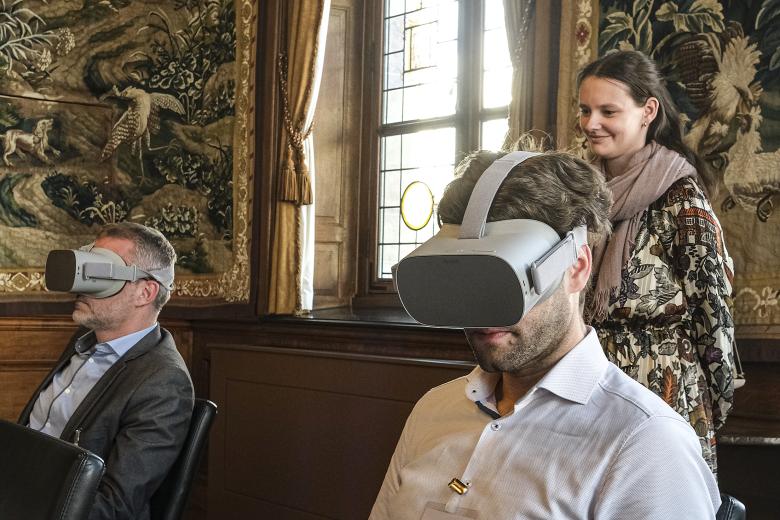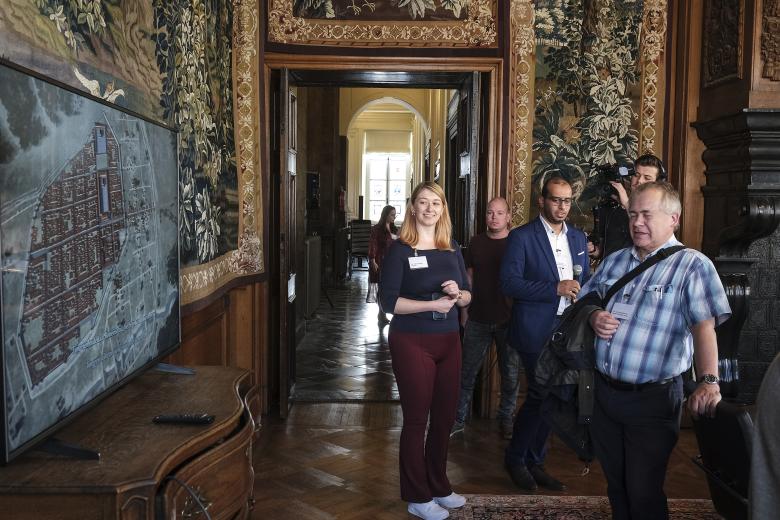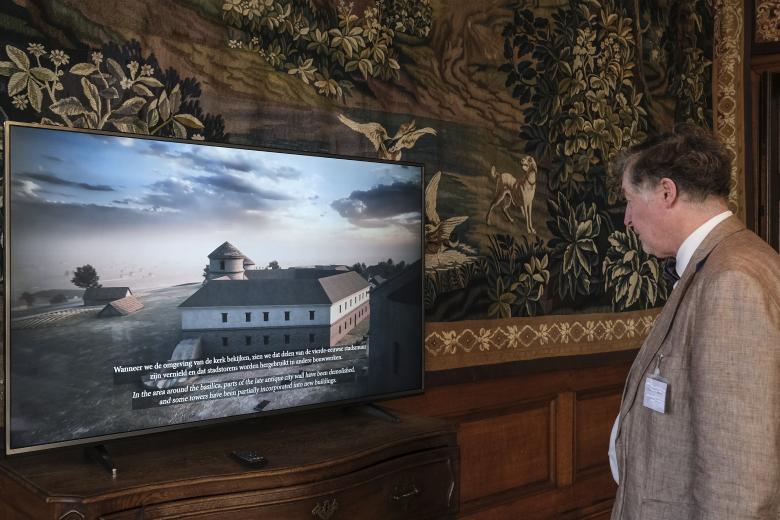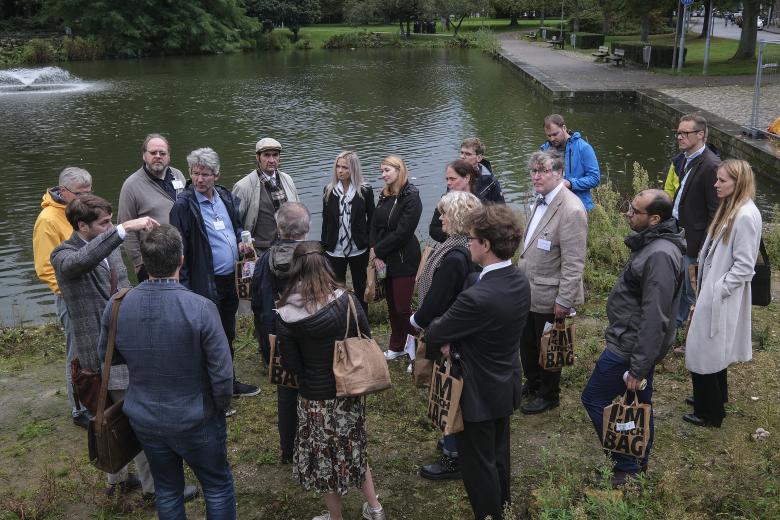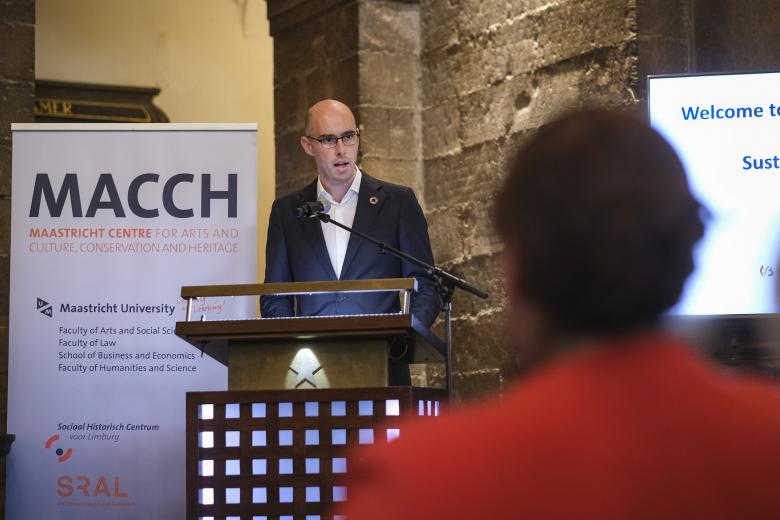International Conference of Terra Mosana: Sustainable Digital Heritage
This International Conference of the Terra Mosana project, organised by Maastricht Centre for Arts and Culture, Conservation and Heritage (MACCH), brings together researchers, policy makers, professionals and practitioners to explore the long-term sustainability of digital heritage.
In particular, the conference will focus on key aspects enhancing technological, societal, and organisational sustainability, such as the importance of collaboration, participatory approaches and social inclusion, digital storytelling for cultural heritage, as well as governance and legal frameworks for digital heritage.
Cultural and digital heritage are important resources for people and communities. They contribute to the development of identity, and are crucial for local memory and ‘sense of place’. Cultural and digital heritage can also play a crucial role in achieving sustainable development, through strengthening social cohesion and well-being, fostering socio-economic regeneration, and enhancing long-term tourism benefits.
Within the framework of the Sustainable Development Goals (SDGs) adopted by the United Nations, none of the 17 SDGs focuses exclusively on cultural heritage. However, culture has a crucial role to play in SDG 11: Make cities and human settlements inclusive, safe, resilient and sustainable. Target 11.4 calls for strengthening efforts to protect and safeguard the world’s cultural and natural heritage. In addition, by bringing together diverse individuals and groups for the development of a project, they also foster social cohesion (SDG 17: Revitalize the global partnership for sustainable development). Moreover, as a rapidly growing economic sector, cultural tourism has a direct positive impact on SDGs, especially on SDG 8: Decent work and economic growth.
Themes of the Conference
Digital Heritage as Collaborative Practice
Collaboration and partnerships are important for the long-term sustainability of digital heritage. The creation, dissemination, and management of digital heritage often require interdisciplinary, and cross-institutional teamwork, engaging both heritage and university partners. This theme addresses the advantages and challenges of such collaborative practices. In particular, we welcome presentations that examine cross-border collaborations and local, regional and European partnerships in ever-expanding digital infrastructures.
Digital Storytelling for Cultural Heritage
Interactive digital storytelling is becoming a popular choice for information presentation in many fields, including museums and heritage environments. This theme investigates how the different types of heritage information can be narrated and presented through digital formats in an engaging and meaningful way. Contributions that explore practices of transmedia storytelling and gamification, as well as the impact of digital media on the public interaction with cultural heritage are encouraged.
Governance and Legal Frameworks for Digital Heritage
Where cultural heritage sites are being digitized, legal and governance questions arise. In particular, this involves questions of copyright protection of the original work, ownership of the generated digital work and access regimes to these digitized cultural content. Legal and governance norms differ between one country and another. Cross-boundary digitalisation projects therefore raise relevant questions as to how ownership and access should be regulated. We welcome contributions that shed light on the legal and governance solutions found for specific examples of digitizing cultural heritage in various jurisdictions.
Participatory approaches and Social Inclusion in Digital Heritage
Cultural heritage is a shared resource and forms part of the cultural identity of communities and individuals. This theme investigates how online and on-site participatory and co-creation approaches can be further developed and applied in the context of digital heritage. In particular, contributions that focus on ways of enhancing social inclusion by involving citizens, residents and heritage visitors in the development of digital heritage are welcomed.
On 29 September (on-site), the opening ceremony will celebrate the achievements of Terra Mosana, with live demonstrations by Terra Mosana partners.
On 30 September - 1, 7 and 8 October (online), there will be keynotes, workshops and a panel session over four afternoons (from 14:00 to 16:30) based on the conference themes: Collaboration (on Thursday 30 September), Digital Storytelling (on Friday 01 October), Legal Frameworks (on Thursday 07 October) and Participation (on Friday 08 October).
The registration-link is now available; click on the green button on this webpage.
Programme
|
Day 1: Wednesday 29 September 2021: Opening Ceremony |
|
|
Morning Program (by invitation only) |
|
|
10:00 – 12:00 |
Terra Mosana Supervision Committee for TM partners and Interreg Representatives |
|
12:00 – 12:30 |
Walking Lunch for TM partners and Interreg Representatives |
|
12:30 – 13:30 |
Restoration Visit – The collapsed town wall of Maastricht for TM partners and Interreg Representatives |
| Afternoon Program physical (registration required) and via livestream on YouTube | |
|
14:00 – 16:30 |
Opening Session: |
|
16:30 – 17:30 |
Closing Drinks (location: Thiessen, Grote Gracht 18) |
|
Day 2: Thursday 30 September: Digital Heritage as Collaborative Practice |
|
|
Collaboration and partnerships are important for the long-term sustainability of digital heritage. The creation, dissemination, and management of digital heritage often require interdisciplinary, and cross-institutional teamwork, engaging both heritage and university partners. This theme addresses the advantages and challenges of such collaborative practices. In particular, we focus on cross-border collaborations and local, regional and European partnerships in ever-expanding digital infrastructures. |
|
|
15:30 – 16:30 |
Panel Session (A)
|
|
Day 3: Friday 01 October: Digital Storytelling for Cultural Heritage |
|
|
Interactive digital storytelling is becoming a popular choice for information presentation in many fields, including museums and heritage environments. This theme investigates how the different types of heritage information can be narrated and presented through digital formats in an engaging and meaningful way. We focus on practices of transmedia storytelling and gamification, as well as the impact of digital media on the public interaction with cultural heritage. |
|
| 12:30 – 14:00 | Workshop (A) “Digital Storytelling for Cultural Heritage” (max. 20p) Workshop convenor: Dr Nicole Basaraba, Maastricht University, Netherlands |
| 14:15 – 14:30 | Virtual coffee break |
| 14:30 – 15:30 |
Panel Session (B.1)
|
| 15:30 – 16:00 | Virtual coffee break |
| 16:00 – 17:00 |
Panel Session (B.2)
|
|
Day 4: Thursday 07 October: Governance and Legal Frameworks for Digital Heritage |
|
| Where cultural heritage sites are being digitized, legal and governance questions arise. In particular, this involves questions of copyright protection of the original work, ownership of the generated digital work and access regimes to these digitized cultural content. Legal and governance norms differ between one country and another. Cross-boundary digitalisation projects therefore raise relevant questions as to how ownership and access should be regulated. We focus on the legal and governance solutions found for specific examples of digitizing cultural heritage in various jurisdictions. | |
| 14:00 – 15:00 |
Panel Session C.1
|
| 15:00 - 15:30 | Virtual coffee break |
| 15:30 – 16:30 |
Panel Session C.2
|
|
Day 5: Friday 08 Oct.: Participatory approaches and Social Inclusion in Digital Heritage |
|
| Cultural heritage is a shared resource and forms part of the cultural identity of communities and individuals. This theme investigates how online and on-site participatory and co-creation approaches can be further developed and applied in the context of digital heritage. In particular, we focus on ways of enhancing social inclusion by involving citizens, residents and heritage visitors in the development of digital heritage. | |
| 13:00 – 15:00 | Workshop (B): “Participatory Design – Terra Mosana 2.0” (max. 20p.) Workshop convenor: Dr Eslam Nofal, Maastricht University, Netherlands |
| 15:00 – 15:30 | Virtual coffee break |
| 15:30 – 16:30 |
Panel Session (D)
|
| 16:30 – 17:00 | Closing |
Organisers
Dr Eslam Nofal, Postdoctoral Researcher in Digital Heritage at the Faculty of Arts and Social Sciences (Department of Technology and Society Studies), Maastricht University.
Dr Vivian van Saaze, Associate Professor of Museum Studies and Conservation Theory at the Faculty of Arts and Social Sciences (Department of Literature and Art), Director of MACCH, Maastricht University.
Prof Sally Wyatt, Professor of Digital Cultures at the Faculty of Arts and Social Sciences (Department of Technology and Society Studies), Maastricht University.
Dr Anke Moerland, Associate Professor of Intellectual Property Law at the Faculty of Law (Department of European and International Law), Maastricht University.
Drs. Eric Wetzels, scientific researcher on cultural heritage at the municipality of Maastricht.
In collaboration with Terra Mosana partners and with contributions by:
Dr Costas Papadopoulos, Assistant Professor in Digital Humanities and Culture Studies, (Department of Literature and Art), Maastricht University.
Dr Nicole Basaraba, Postdoctoral Researcher at Studio Europe Maastricht.
Partners
Terra Mosana is being executed within the context of Interreg V-A Euregion MeuseRhine, and is financed by the European Regional Development Fund, the Walloon Region, the Provinces of Limburg (NL and B) and the Land of North Rhine-Westphalia.
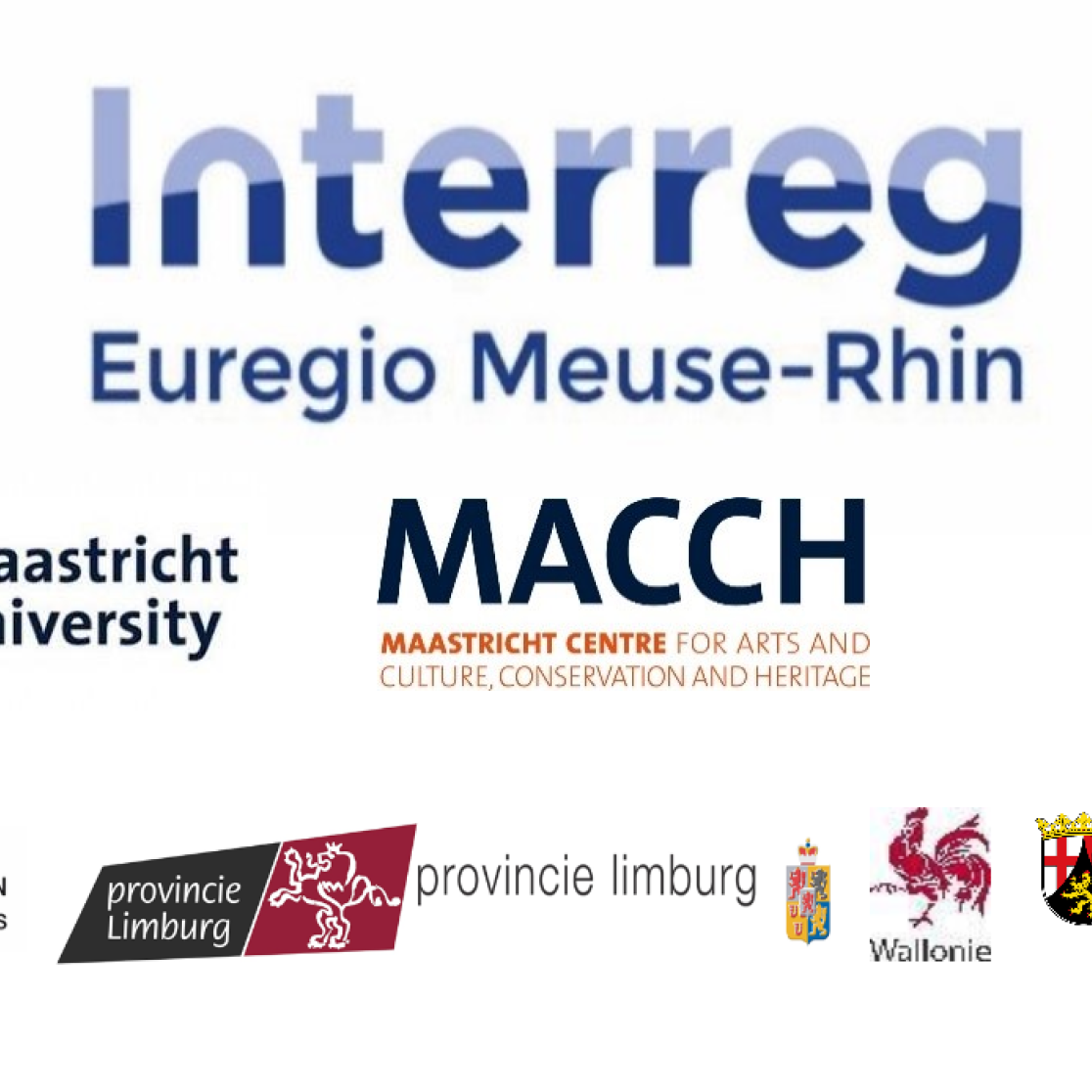
Relevant links
https://youtu.be/JGmVazws5ac
https://www.terramosana.org/
https://www.maastrichtuniversity.nl/research/maastricht-centre-arts-and-culture-conservation-and-heritage

